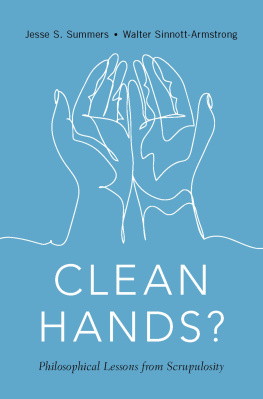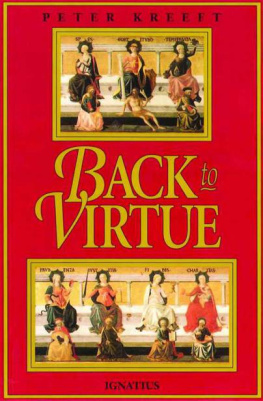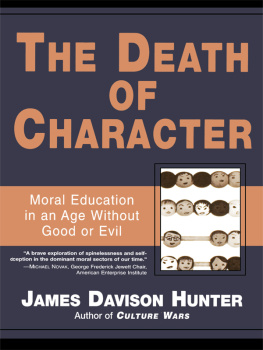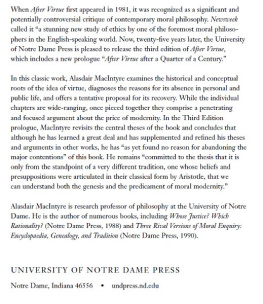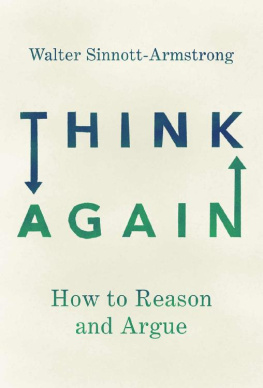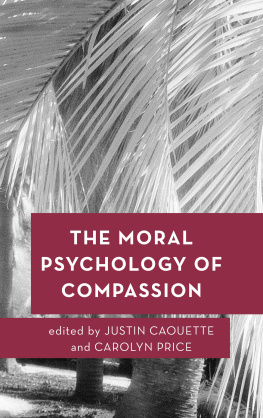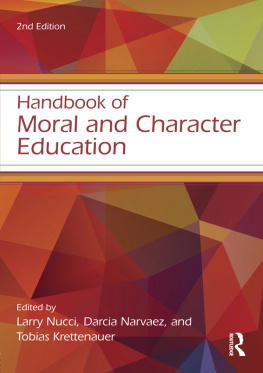Sinnott-Armstrong Walter - Moral Psychology: Volume 5: Virtue and Character
Here you can read online Sinnott-Armstrong Walter - Moral Psychology: Volume 5: Virtue and Character full text of the book (entire story) in english for free. Download pdf and epub, get meaning, cover and reviews about this ebook. year: 2017, publisher: MIT Press, genre: Politics. Description of the work, (preface) as well as reviews are available. Best literature library LitArk.com created for fans of good reading and offers a wide selection of genres:
Romance novel
Science fiction
Adventure
Detective
Science
History
Home and family
Prose
Art
Politics
Computer
Non-fiction
Religion
Business
Children
Humor
Choose a favorite category and find really read worthwhile books. Enjoy immersion in the world of imagination, feel the emotions of the characters or learn something new for yourself, make an fascinating discovery.
- Book:Moral Psychology: Volume 5: Virtue and Character
- Author:
- Publisher:MIT Press
- Genre:
- Year:2017
- Rating:4 / 5
- Favourites:Add to favourites
- Your mark:
- 80
- 1
- 2
- 3
- 4
- 5
Moral Psychology: Volume 5: Virtue and Character: summary, description and annotation
We offer to read an annotation, description, summary or preface (depends on what the author of the book "Moral Psychology: Volume 5: Virtue and Character" wrote himself). If you haven't found the necessary information about the book — write in the comments, we will try to find it.
Moral Psychology: Volume 5: Virtue and Character — read online for free the complete book (whole text) full work
Below is the text of the book, divided by pages. System saving the place of the last page read, allows you to conveniently read the book "Moral Psychology: Volume 5: Virtue and Character" online for free, without having to search again every time where you left off. Put a bookmark, and you can go to the page where you finished reading at any time.
Font size:
Interval:
Bookmark:
edited by Walter Sinnott-Armstrong and Christian B. Miller
A Bradford Book
The MIT Press
Cambridge, Massachusetts
London, England
2017 Massachusetts Institute of Technology
All rights reserved. No part of this book may be reproduced in any form by any electronic or mechanical means (including photocopying, recording, or information storage and retrieval) without permission in writing from the publisher.
This book was set in Stone Sans and Stone Serif by Toppan Best-set Premedia Limited. Printed and bound in the United States of America.
Library of Congress Cataloging-in-Publication Data
Moral psychology / edited by Walter Sinnott-Armstrong.
v. cm.
A Bradford Book.
Includes bibliographical references and index.
Contents: v. 1. The evolution of morality : adaptations and innateness -- v. 2. The cognitive science of morality : intuition and diversity -- v. 3. The neuroscience of morality : emotion, disease, and development. -- v. 4. Free will and moral responsibility
ISBN 978-0-262-19561-4 (vol. 1 : hardcover : alk. paper) -- ISBN 978-0-262-69354-7 (vol. 1 : pbk. : alk. paper) -- ISBN 978-0-262-19569-0 (vol. 2 : hardcover : alk. paper) -- ISBN 978-0-262-69357-8 (vol. 2 : pbk. : alk. paper) -- ISBN 978-0-262-19564-5 (vol. 3 : hardcover : alk. paper) -- ISBN 978-0-262-69355-4 (vol. 3 : pbk. : alk. paper) ISBN 978-0-262-02668-0 (vol. 4 : hardcover : alk. paper) ISBN 978-0-262-52547-3 (vol. 4 : pbk : alk. paper) -- ISBN 978-0-262-03557-6 (vol. 5 : hardcover : alk. paper) -- ISBN 978-0-262-53318-8 (vol. 5 : pbk : alk. paper)
eISBN 9780262337274
1. Ethics. 2. Psychology and philosophy. 3. Neurosciences. I. Sinnott-Armstrong, Walter, 1955
BJ45.M66 2007
170--dc22
ePub Version 1.0
Walter is happy to dedicate this volume to all of his golfing buddies because they have built his character and overlooked his vices.
Christian would like to dedicate this volume to the Wake Forest University philosophy department, which has been such a joy to be a part of for the past twelve years.
The main papers in this volume arose from a conference at Wake Forest University in May of 2015. The conference was part of the Developing Character Project (www.thecharacterproject.com), directed by Christian B. Miller, which was funded by a very generous grant from the Templeton World Charity Foundation. Additional funding for the conference was provided by the Wake Forest Philosophy Departments Thomas Jack Lynch fund.
For support while preparing this volume, Christian would like to thank the Templeton World Charity Foundation. The opinions expressed here and throughout the volume are those of the authors and do not necessarily reflect the views of the Foundation. For help in organizing the conference, Christian is very grateful to Julia Blackwell and Kathleen Stimely, who made everything run very smoothly. Win-Chiat Lee, Jessie Lee Miller, Charles Miller, and Joyous Miller were also tremendously supportive during the entire process of putting this volume together. Finally, a very special thanks to Walter Sinnott-Armstrong. He was very generous in asking me to come onboard and coedit this volume with him, and he has been absolutely phenomenal to work with. We have spent countless hours together planning the chapters, inviting contributors, editing drafts, organizing the material, and doing all the other things that come with a large project like this. Unfailingly, Walter has been tremendous, and I could not ask for a better collaborator. Here and in many other ways, he exhibits much virtue.
Walter would like to thank all who helped fund and organize the conference (listed above) as well as Duke University and the Kenan Institute for Ethics in particular for supporting MADLAB (Moral Attitudes and Decision-Making lab) and the members of MADLAB for many discussions about the issues in this volume. Walter is also very grateful to Christian B. Miller for going far above and beyond the call of duty in arranging the conference and for his admirable care in editing the numerous and diverse materials collected here. His efficiency, insights, patience, and good cheer made editing this volume a pleasant learning experience. Here and in many other ways, he exhibits extremely good character.
Christian B. Miller and Walter Sinnott-Armstrong
Volumes 14 of this series focused on moral judgments about actions: Which actions are morally right or wrong? Are actions ever freely willed? Are agents ever morally responsible for their actions? Volume 5 turns to another important area of moral psychology, namely virtues, vices, and character. Here the focus is on general character traits instead of specific actions.
There has been a resurgence of interest in virtues, vices, and character during the past forty years in philosophy. Psychology has also seen a vigorous debate about the relative contributions of personality traits and social circumstances to individual decisions. Unfortunately, most moral philosophers worked in relative isolation from the sciences. In recent years, however, psychology and philosophy have been brought together.
This volume is an outgrowth of the new wave of interest in interdisciplinary work on virtue, vice, and character. The chapters that follow all raise philosophical issues in light of empirical work in psychology, some of which was conducted by the authors themselves. Each chapter provides new and exciting avenues for better understanding virtue, vice, and character in ways that could not be achieved by philosophy or psychology alone.
This introduction will briefly summarize the chapters. Each chapter is followed by two commentators and a reply, with one commentator being a philosopher and the other a psychologist.
The opening chapters provide rich discussions of two recent challenges to the very notion of character traits as well as virtues and vices: an eliminativist challenge about the need for character traits and a situationist challenge about the empirical adequacy of traditional accounts of virtues and vices. In the first chapter, the psychologist C. Daniel Batson advocates the eliminativist challenge. Specifically, he questions the scientific usefulness of the concept of character, preferring to jettison it in favor of familiar folk psychological notions like goals and values. In addition, by drawing on his own extensive research on what he calls moral hypocrisy, Batson questions the prevalence and power of good character.
Both of Batsons commentators focus on his discussion of moral hypocrisy. Joshua May argues that, even in light of the moral hypocrisy research, there is good reason to think that we are more virtuous and morally motivated than Batson suggests. Specifically, he tries to show that the data may provide evidence for certain forms of moral integrity and that the scope of moral hypocrisy may be limited. Karl Aquino similarly takes Batsons data to warrant a less cynical interpretation about the goodness of peoples character. His strategy in arguing for this response is different than Mays, as Aquino sees hypocrisy as an outcome of the selfs maintaining a belief in its own goodness alongside a desire for consistency. In Aquinos eyes, this provides for a more positive interpretation of the hypocrisy results as demonstrating a form of identity work. In his reply to May and Aquino, Batson appreciates their original and thoughtful suggestions but explains why his cynicism about good character remains.
The next two chapters engage with situationist challenges to character. Situationists in social psychology first raised doubts about the existence and role of cross-situationally consistent character traits back in the 1960s, culminating in the publication of Walter Mischels landmark 1968 book
Font size:
Interval:
Bookmark:
Similar books «Moral Psychology: Volume 5: Virtue and Character»
Look at similar books to Moral Psychology: Volume 5: Virtue and Character. We have selected literature similar in name and meaning in the hope of providing readers with more options to find new, interesting, not yet read works.
Discussion, reviews of the book Moral Psychology: Volume 5: Virtue and Character and just readers' own opinions. Leave your comments, write what you think about the work, its meaning or the main characters. Specify what exactly you liked and what you didn't like, and why you think so.


